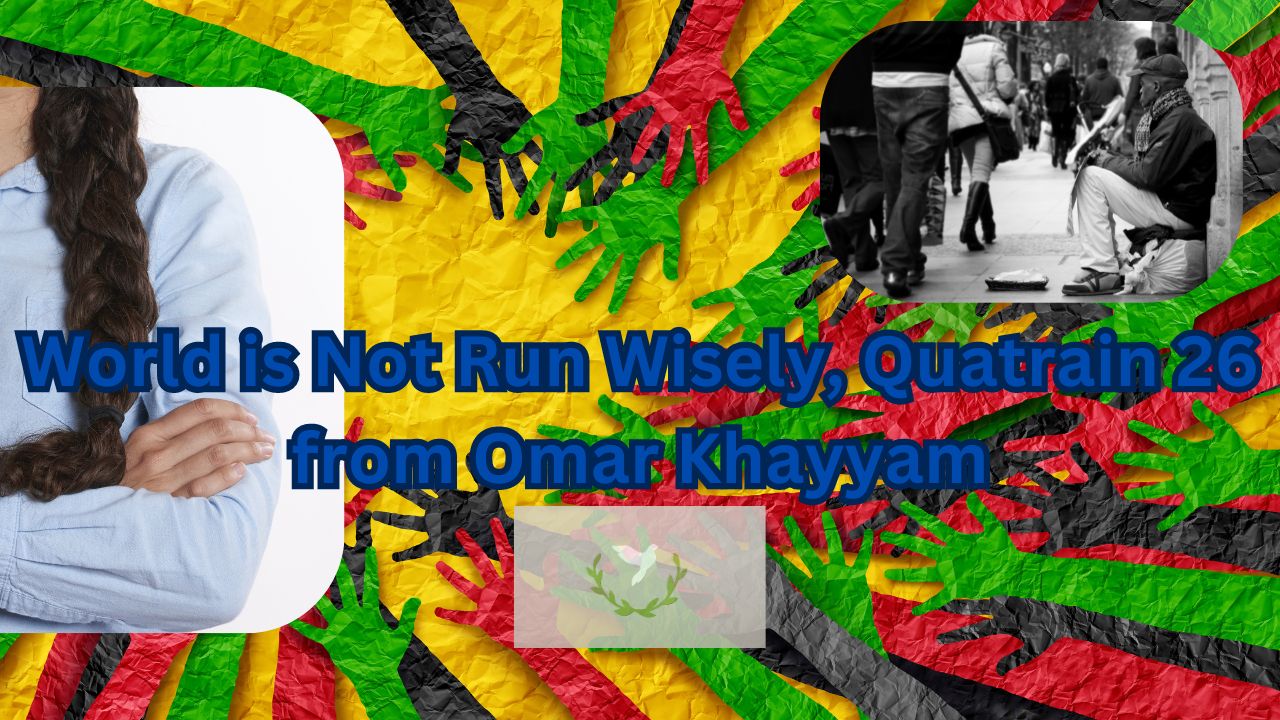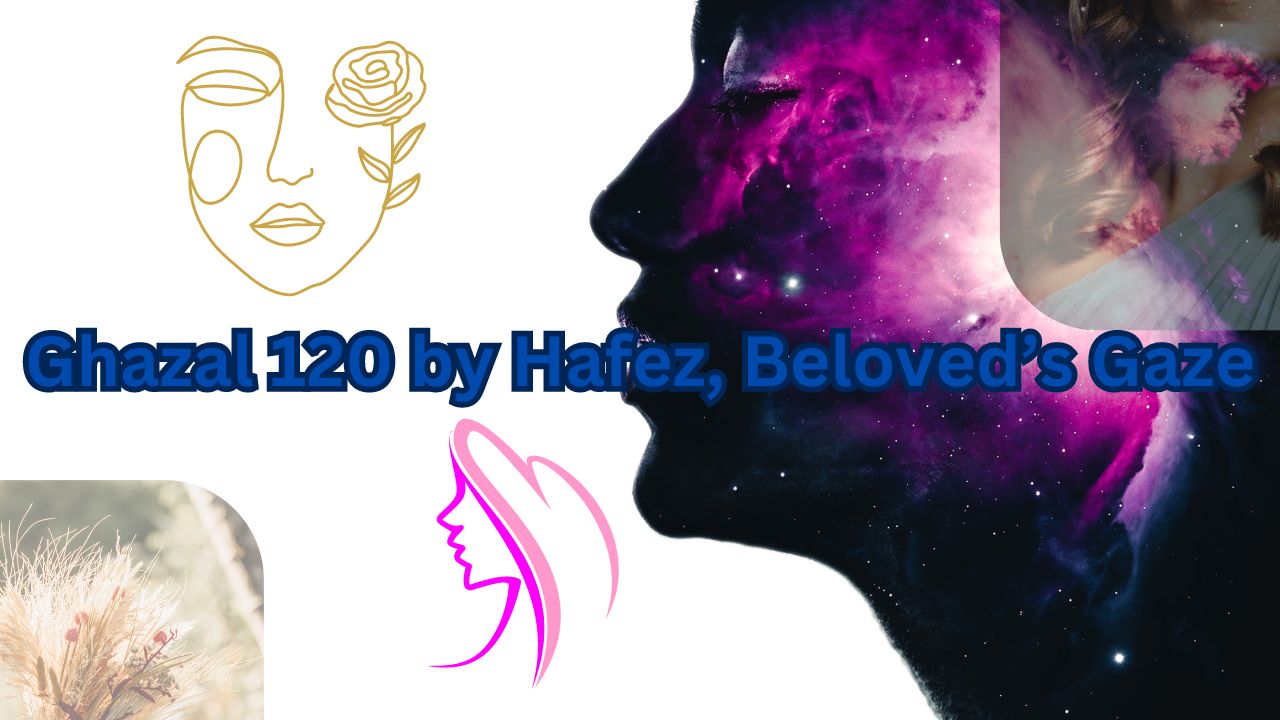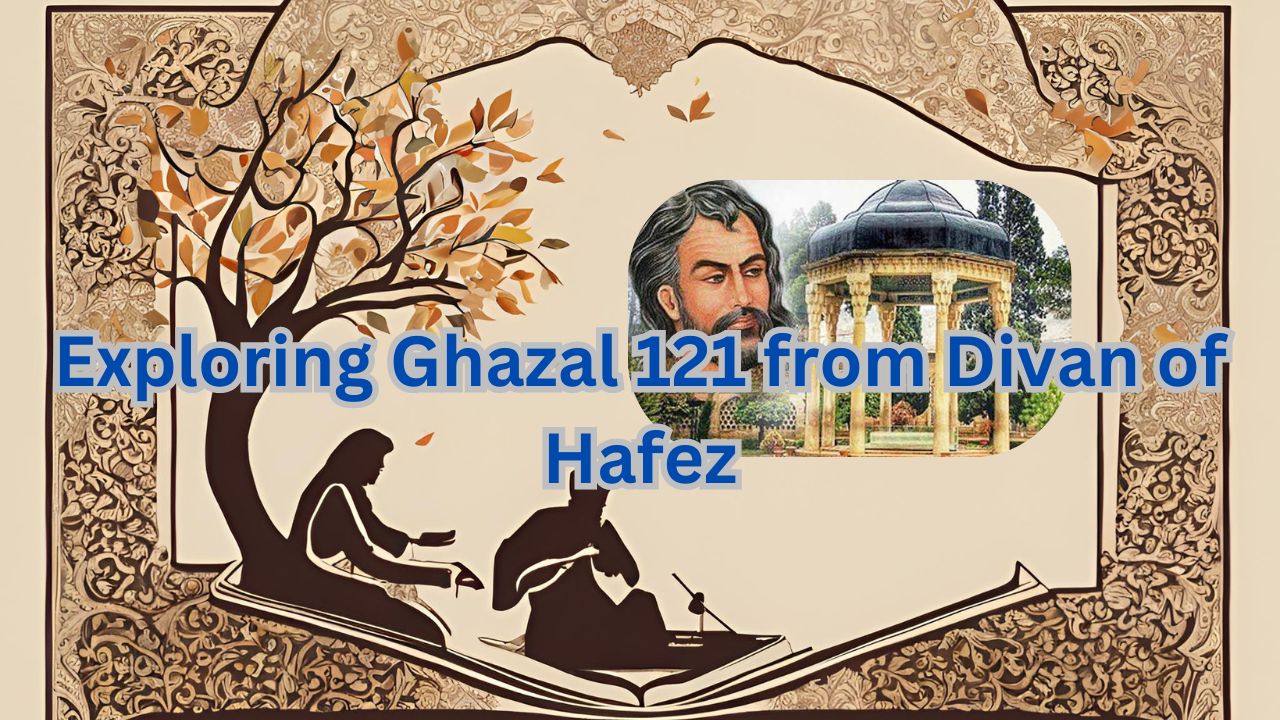This world is not run according to the wise, so it is not that important what the true nature of life is. Because ultimately we have to abandon many dreams and lie within earth, what is the worrying for? This is the message of quatrain 26 from Rubaiyat of Omar Khayyam. Here is the original Persian poem, its translations and a brief analysis.
چون چرخ به کام یک خردمند نگشت
خواهی تو فلک هفت شمر خواهی هشت
چون باید مرد و آرزوها همه هشت
چه مور خورد به گور و چه گرگ به دشت
Fate's wheel turns blind, regardless of the wise,
So count the heavens, seven, eight, or thrice.
For death awaits, and all our dreams must cease,
Whether ants or wolves devour our mortal lease.
A contemporary and informal translation:
Life's not fair, no matter how smart you are,
So who cares how many planets are out there?
We all die in the end, that's a fact,
Whether eaten by ants or a hungry jack.
The World's Indifference: A Reflection on Omar Khayyam's Quatrain 26
Omar Khayyam, the renowned Persian poet and philosopher, offers a sobering perspective on life in his Rubaiyat. Quatrain 26, in particular, is a poignant meditation on the futility of human ambition and the inescapable grasp of mortality.
“Since the wheel of fortune has not turned to the liking of a wise man,
Whether you count seven or eight heavens, it matters not.
Since one must die, and all desires are vain,
What does it matter if an ant eats you in a grave or a wolf in the wilderness?”
Khayyam's words paint a stark picture of a world indifferent to human aspirations. The "wheel of fortune," a symbol of fate or destiny, turns without regard for wisdom or merit. The pursuit of knowledge, represented by the counting of celestial bodies, becomes irrelevant in the face of death. All human desires, no matter how grand or humble, are ultimately ephemeral.
The final lines of the quatrain are particularly striking in their bluntness. The image of a corpse being consumed by ants or a wolf serves as a stark reminder of the ultimate equality of all humans in the face of death. There is no distinction between the wise and the foolish, the rich and the poor, when confronted with the inevitability of mortal decay.
This quatrain invites us to consider the nature of our existence. Are we consumed by endless desires and ambitions, or can we find peace in the acceptance of life's impermanence? Khayyam suggests that true wisdom lies not in the pursuit of worldly success, but in recognizing the inherent fragility of human life and finding meaning in the present moment.
While the poem's message may seem pessimistic, it is ultimately a call to embrace life's complexities with a sense of equanimity. By acknowledging the limitations of human existence, we can free ourselves from the burden of unrealistic expectations and find joy in the simple pleasures of life.
What are your thoughts on Omar Khayyam's quatrain? How does it resonate with you?





